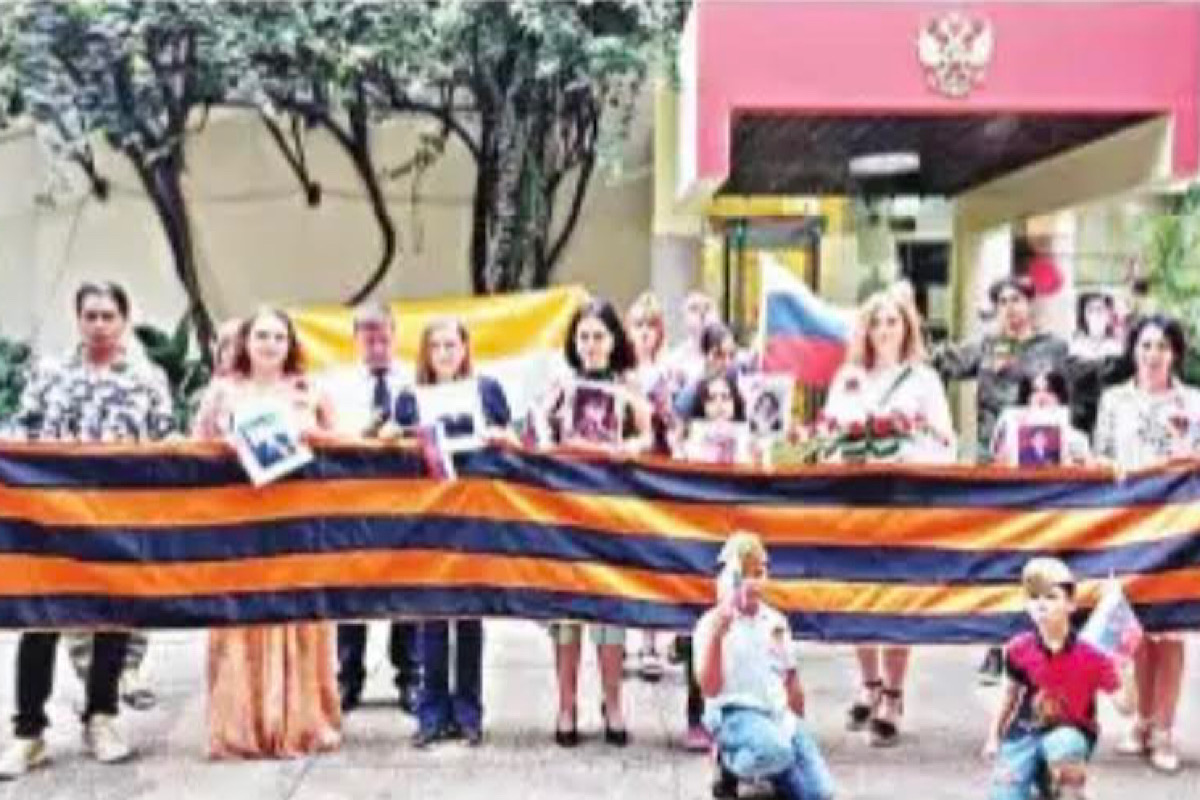Hooghly man served in Azad Hind Fauj
The people of Hooghly, Balaghar takes pride in recollecting the memories of the great revolutionary Sarojendra Nath Mukhopadhyay. Whenever there…
Commemorating victory over fascism in World War-II, the Russian Centre for Science and Culture in Kolkata conducted an exhibition to observe the event at Gorky Sadan from 4-10 May.

Celebrating victory against fascism in WW-II (Photo:SNS)
Commemorating victory over fascism in World War-II, the Russian Centre for Science and Culture in Kolkata conducted an exhibition to observe the event at Gorky Sadan from 4-10 May.
Celebrating the 78th anniversary of the victory, exhibits of rare historical photographs of the war, books, journals, memorabilia and various artworks by Indian artists were presented for public viewing.
Advertisement
The exhibition was held in association with The Institute of Russian Language, Eisenstein Cine Club, Cine Central Calcutta and North Calcutta Film Society. Documentaries and feature films on the war like Panfilov’s 28 Men, Stalingrad,
Advertisement
Battle of Sevastopol and T-34 were screened. Srijan, a Howrah-based theatre group, presented a drama titled, Operation Barbarossa, on the inauguration day. Hitler began Operation “Barbarossa”, his invasion of the Soviet Union, on 22 June, 1941.
It marked the start of the campaign that would eventually determine the outcome of the Second World War. Hitler saw the Soviet Union to be his innate foe. In order to provide Germany the living space it needed in the East, he sought to destroy its army, seize its huge economic resources, and enslave its people. In the north, Leningrad suffered an attack, in the middle, Moscow was attacked, and in the south, Ukraine was attacked.
Hitler anticipated winning easily. Despite its size, the Soviet Army had poor leadership and training. Joseph Stalin, the Soviet dictator, was feared by its senior commanders just as much as the invader that was suddenly breaching their defences.
Hitler had issued Führer Directive 21 by the year’s conclusion, authorising Germany to invade the Soviet Union. The invasion, code-named Operation Barbarossa, ordered German forces to go forward along a line extending from the port of Archangel to the port of Astrakhan on the Volga River, close to the Caspian Sea
Advertisement